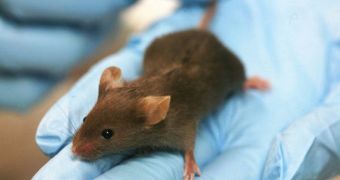Remaining young forever, and avoiding to grow old are dreams that most people have since the dawn of time. Experts have tried to make this a reality, by looking into a number of possible answers as to how to make the cells stop dying, while keeping them healthy at the same time. And, while results have been scarce for humans, not the same can be said about mice. Recently, experts have determined that the immunosuppressive drug rapamycin can boost the life span of a mouse with the equivalent of 30 human years.
The team behind the investigation cautions that it's highly unlikely for it to have the same effects on humans, but highlights the fact that it was its ability to slow down cellular growth that made it a target for cancer and immune research in the first place. “It’s unlikely that the life extension came from merely postponing a few specific diseases. And the treatment didn’t start until the mice were the equivalent of a 60-year-old human. No other intervention has been so effective starting late in life,” David Harrison, a gerontologist at the Jackson Laboratory, said of the new success.
He has also been the leader of a research team that conducted the mouse experiments. Two other teams also ran their own studies, using the same drug. Studying gerontology is very difficult, scientists in the field say, because of the complex nature of the problem and also on account of the fact that a great number of researchers tend to look at diseases as separate manifestations of the body, rather than as a sign of a common origin. And, without consensus, cooperation among science teams is fairly difficult.
“There’s no obvious way to turn this into a lifespan extension for humans. But it’s clearly a milestone in the field, to be able to use one small molecule to have such a big effect in an animal. Twenty years ago, if you suggested that one small molecule could slow down aging, people would have said it was impossible,” Harvard Gerontologist David Sinclair, who has not been part of the investigation, added.
“There are only a handful of really crucial pathways that control lifespan. These pathways all talk to each other. You can think of them not as separate, but as part of a larger network of pathways that are communicating and working in concert,” he concluded, quoted by Wired.

 14 DAY TRIAL //
14 DAY TRIAL //